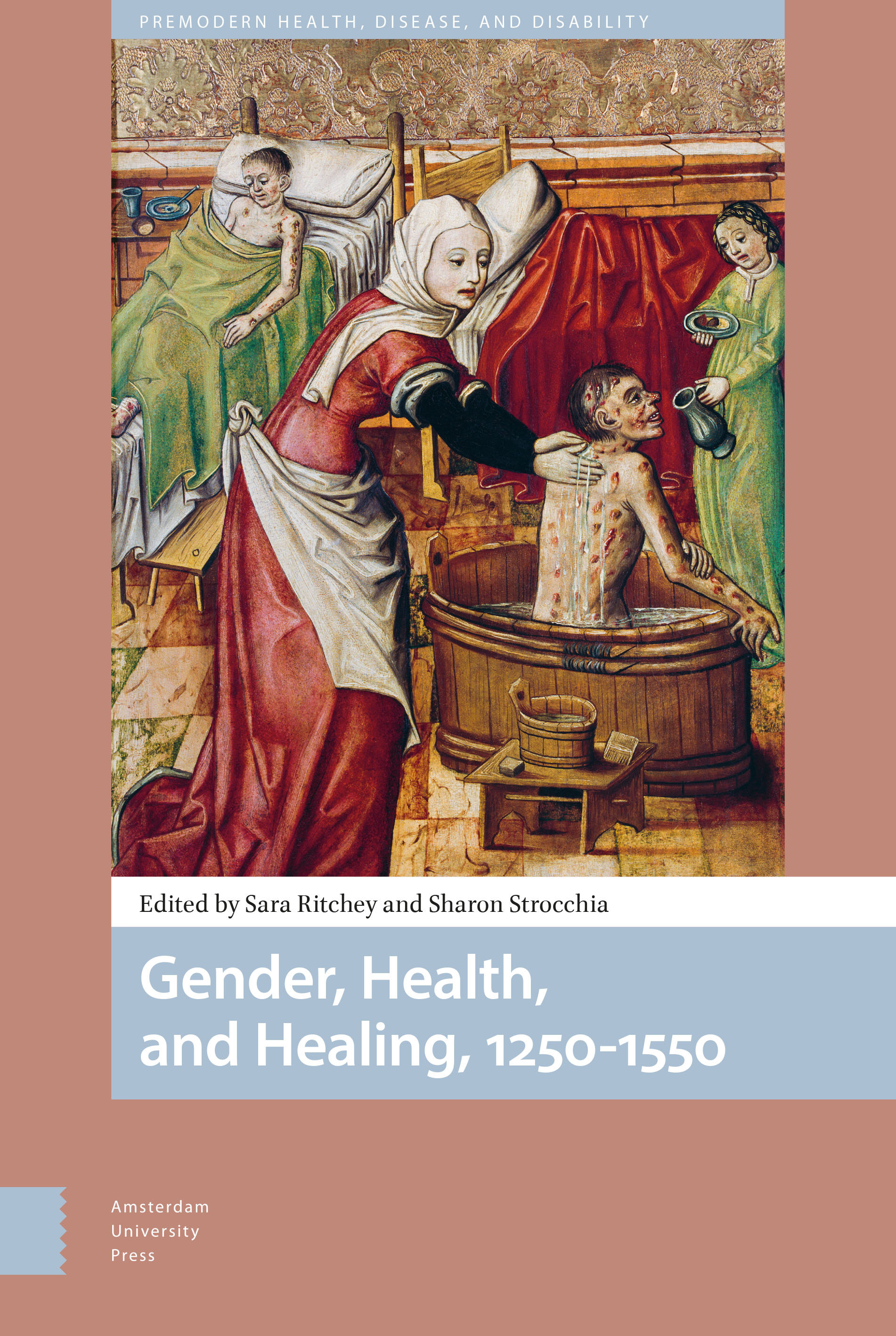
Dr. Sharon T. Strocchia, Professor of History, co-edited a newly-published volume of essays with Dr. Sara Ritchey, Associate Professor at the University of Tennessee. Titled Gender, Health, and Healing, 1250-1550, the collection’s 13 essays offer new understandings about women healers and bodywork in societies of the later medieval and Renaissance eras, a formative period in the history of healthcare and medicine. Read the full blurb from Amsterdam University Press below and find more information at Gender, Health, and Healing, 1250-1550 (Amsterdam University Press, 2020).
This path-breaking collection offers an integrative model for understanding health and healing in Europe and the Mediterranean from 1250 to 1550. By foregrounding gender as an organizing principle of healthcare, the contributors challenge traditional binaries that ahistorically separate care from cure, medicine from religion, and domestic healing from fee-for-service medical exchanges. The essays collected here illuminate previously hidden and undervalued forms of healthcare and varieties of body knowledge produced and transmitted outside the traditional settings of university, guild, and academy. They draw on non-traditional sources — vernacular regimens, oral communications, religious and legal sources, images and objects — to reveal additional locations for producing body knowledge in households, religious communities, hospices, and public markets. Emphasizing cross-confessional and multilinguistic exchange, the essays also reveal the multiple pathways for knowledge transfer in these centuries. Gender, Health, and Healing, 1250-1550 provides a synoptic view of how gender and cross-cultural exchange shaped medical theory and practice in later medieval and Renaissance societies.